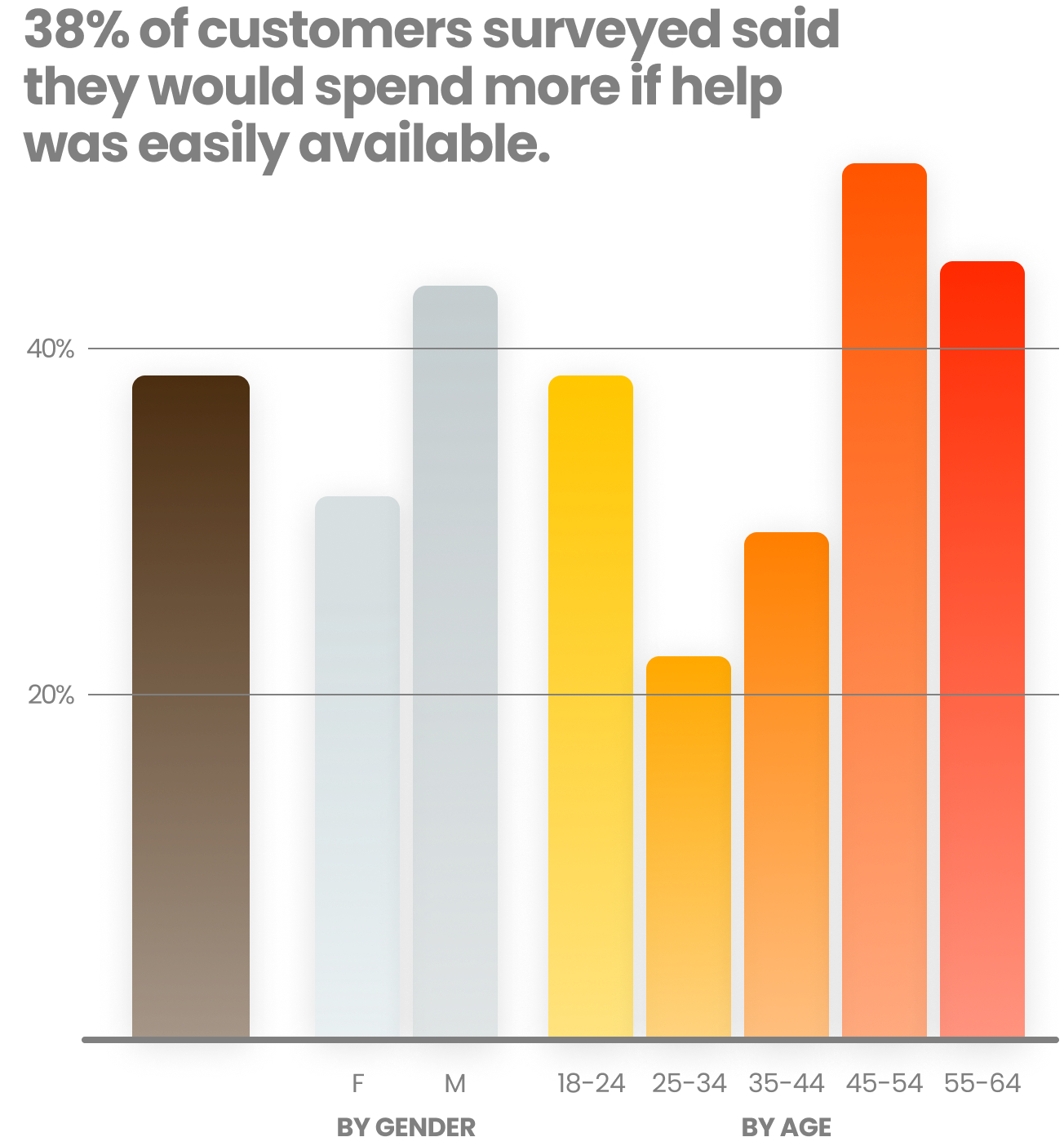Vending customers are willing to buy more. With some help.
In our recent research, vending and self-service customers not only told us that access to customer support was important to them – more important than price. It also turns out that it would encourage many people to spend more. But how many more?

This blog series highlights findings from our recent customer survey into behaviour and attitudes of vending and self-service customers – those customers that recently used a vending machine, self-service market, office coffee service, or other unattended retail service. Our first post focused on what was most important to those customers. This, our second, looks at another interesting insight into customer behaviour: the influence of customer support at unattended point-of-sale.
Emotions in motion.
We asked survey participants, “Would you use the service more if you knew help was easily available (e.g. if you needed a refund)?” – service being one or more of: vending machine, self-service market, office coffee service, or other unattended retail service. Most said their use would stay about the same, but nearly 38% of people said they would use the service more.

44% of males said they would spend more often. 44%! That’s not far off every second male in the survey. 32% of females also said they would spend more – almost one in three!
So what’s going on here?
When you think about it, people are busy or have a lot on their mind. So we tend to fall back on mental shortcuts to make decisions. While people think they're using reasoning a lot when making decisions, they're likely using emotion more than they think – people simply don’t have the time or energy for a complex decision processes for most things and use mental shortcuts instead. For shopping in particular, we often rely on something so immediate that it requires literally no thought, which when you think about it, is the whole point. We use our emotions.
Mental shortcuts in sales.
Of course, we’ve known about the use of mental shortcuts in marketing for a long time. It’s why when done properly branding creates extraordinary value, and why companies like Coke are willing to pay $5.6 billion for a brand like Bodyarmor (hint: it’s not for the sports drink recipes). A considered marketer knows that over time investment in brand becomes a powerful alternative to decision making. Brands reduce the amount of time to make a considered decision – "name brands" become a shortcut for trust.
But most of us don't have the legacy of a name brand or the time and megabucks to build one. Customers get that, so they automatically start looking for other trust signals. In a convenience setting – like a self-service environment – where speed, ease and convenience is the goal, my guess is they won’t look too hard. They'll try to quickly get a "feel" for the environment and make a quick decision.
Help the people buy.
Getting back to the data: customers are telling us that they would spend more frequently if it was easier to get help. Of course, everyone is hoping it will never come to that, but customers are comforted by the fact that it's available. In this way, ZippyAssist provides a useful trust signal. It signals to a customer that your company that they can trust, and that help is only a TXT away.
Try to help customers "feel" instead of think. The truth is, they will anyway. So help them to feel the right things, like confidence and trust in your company. What will follow is more sales.
Interested in ZippyAssist for your business?
